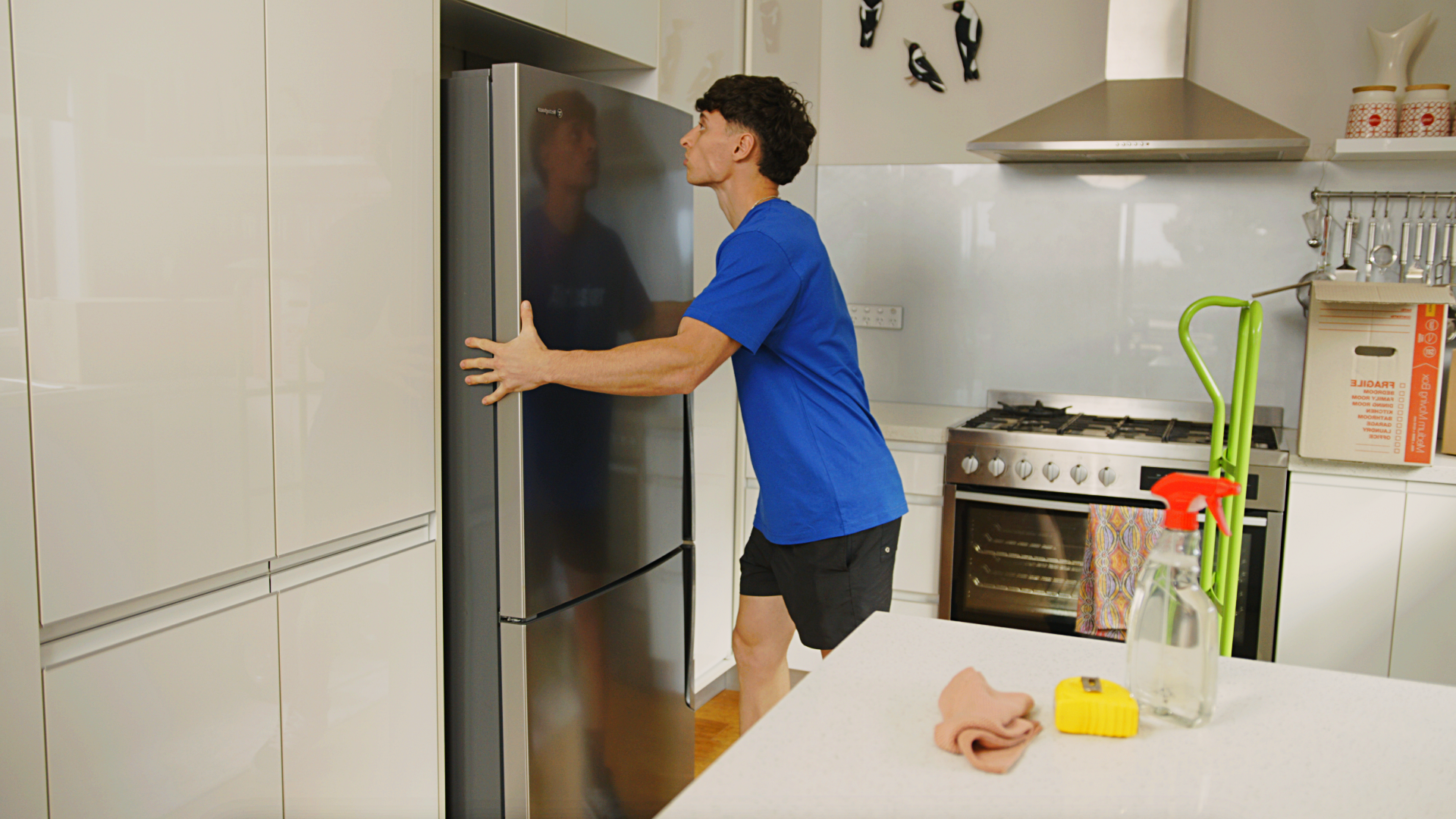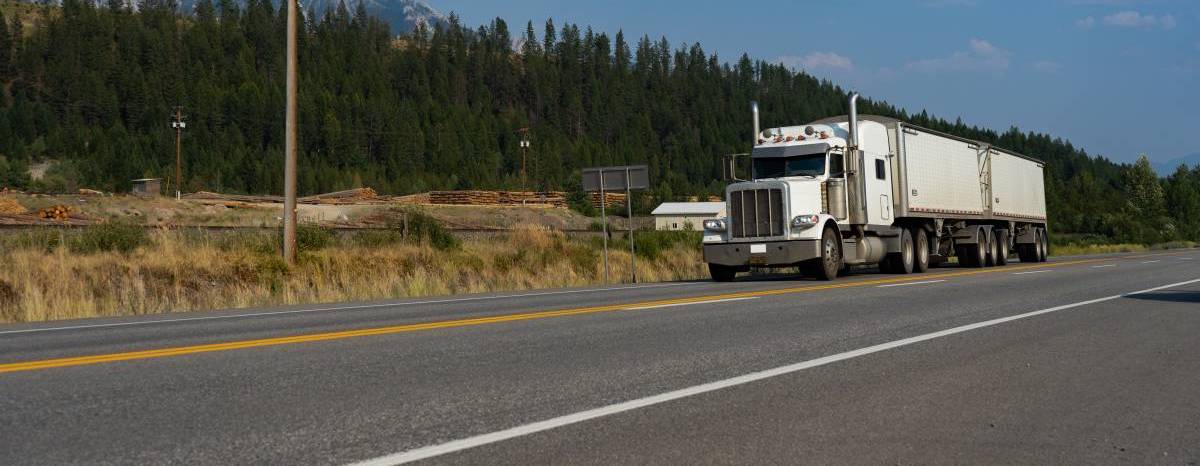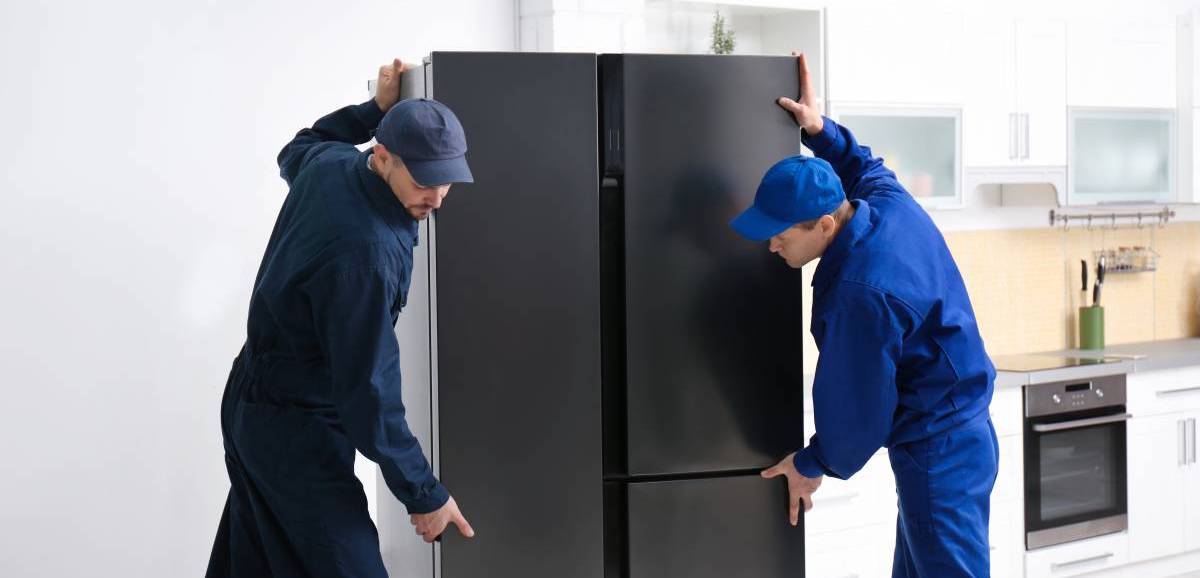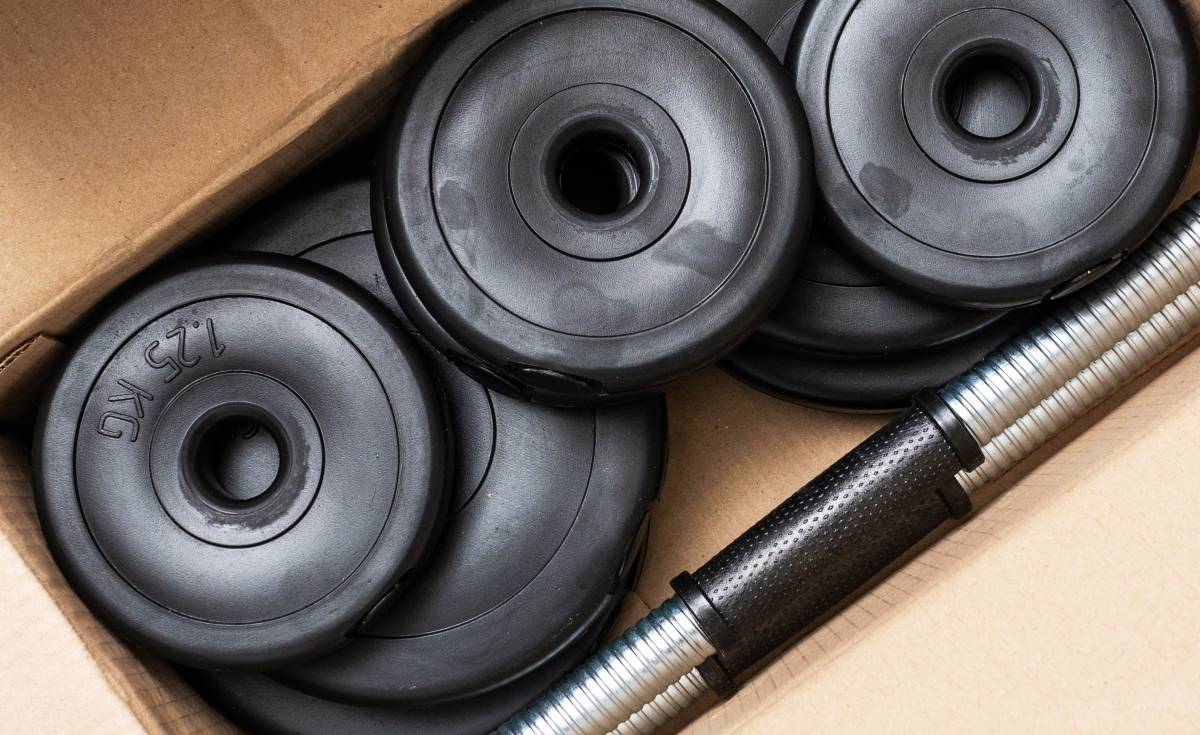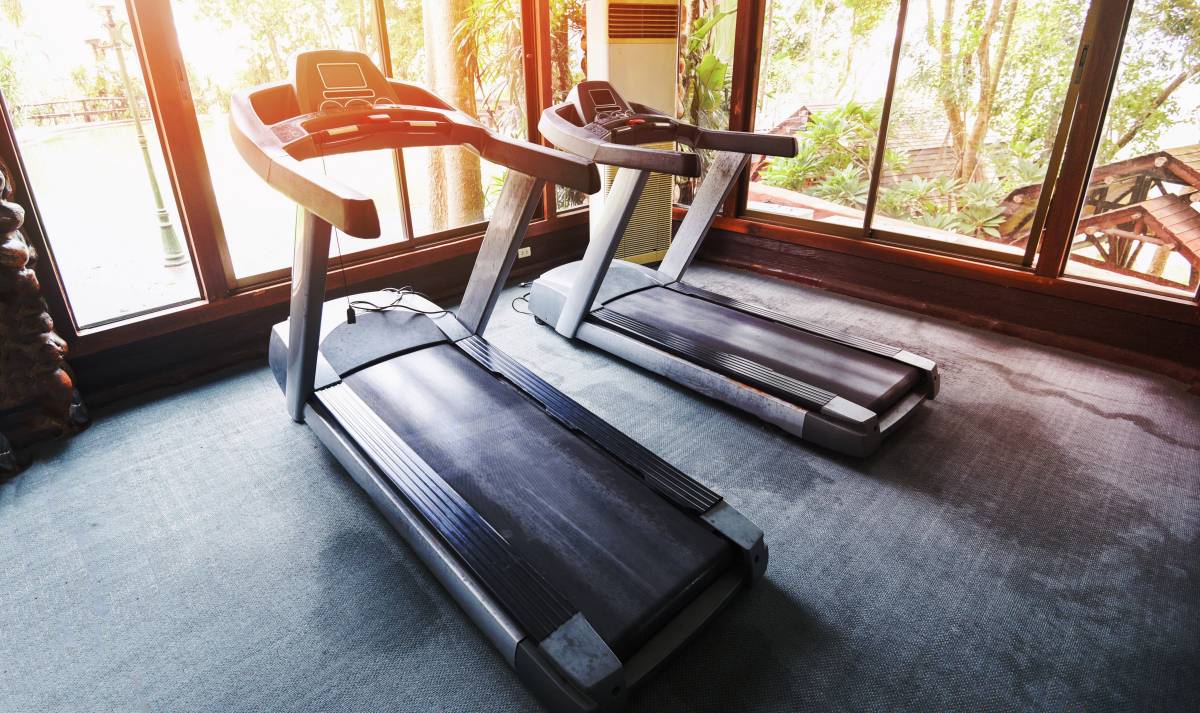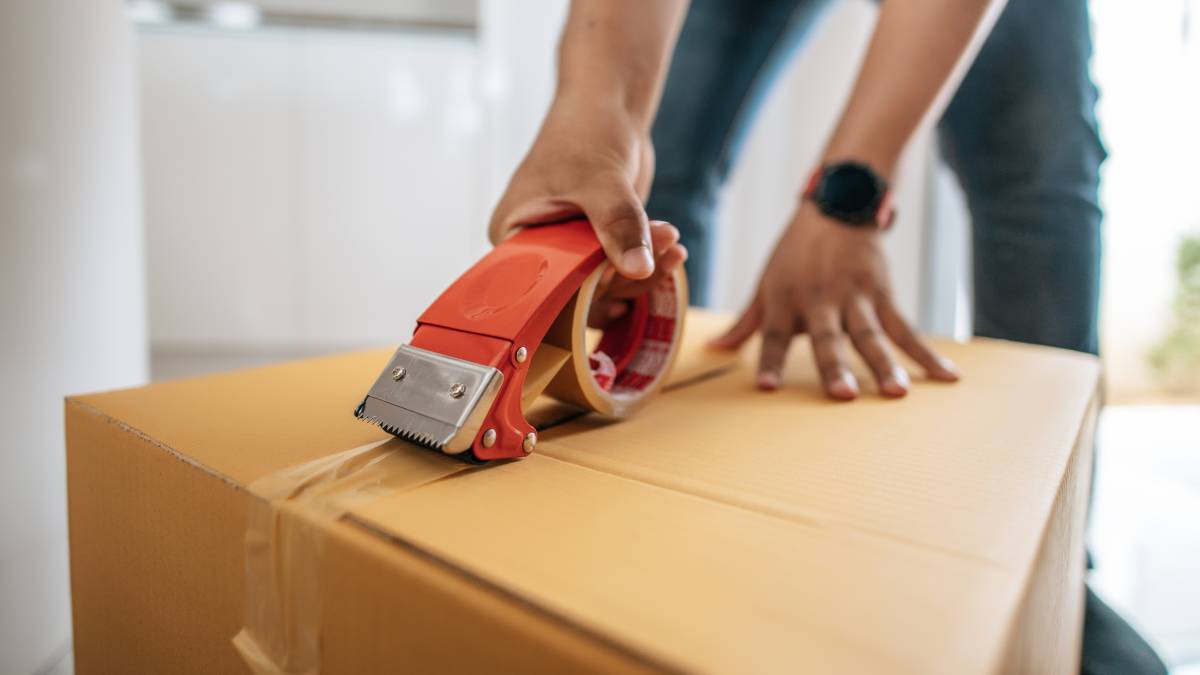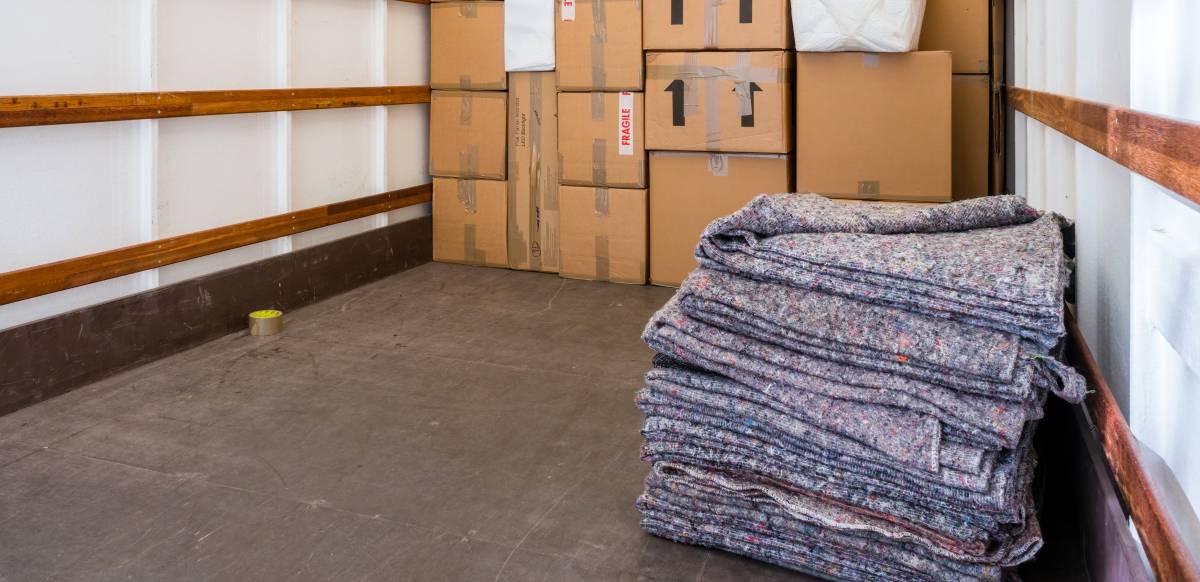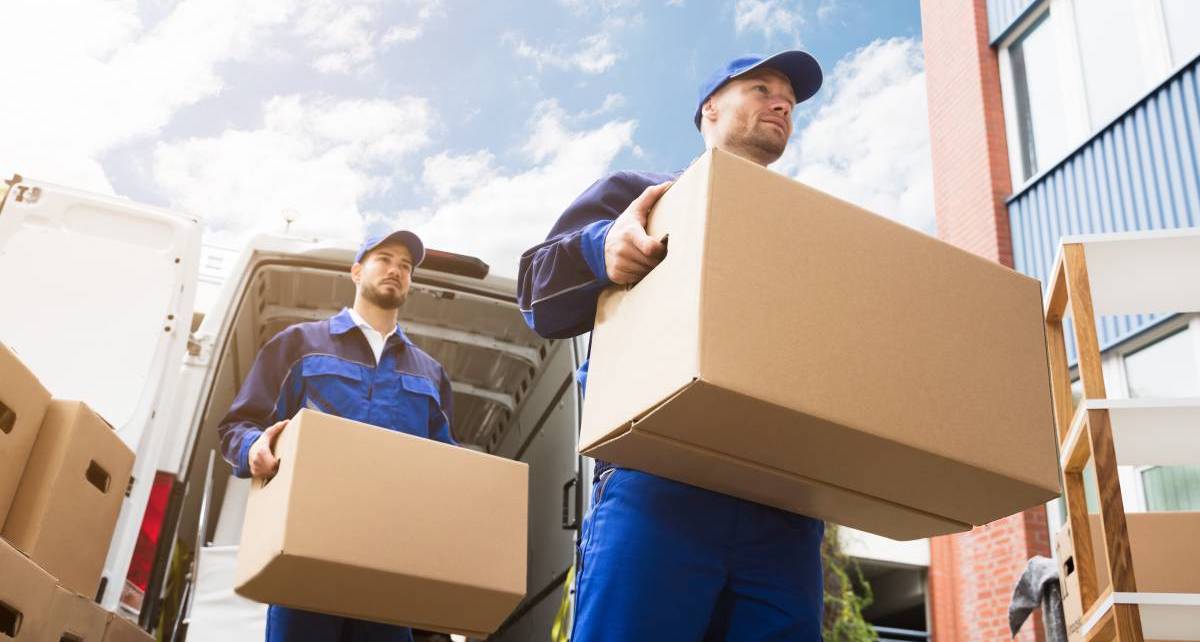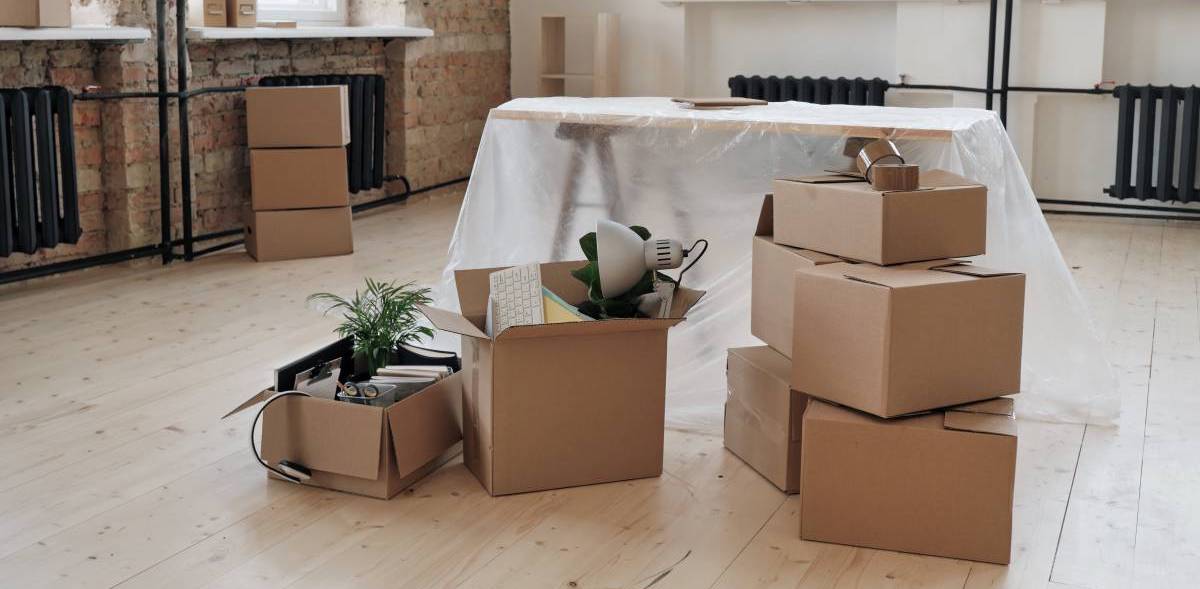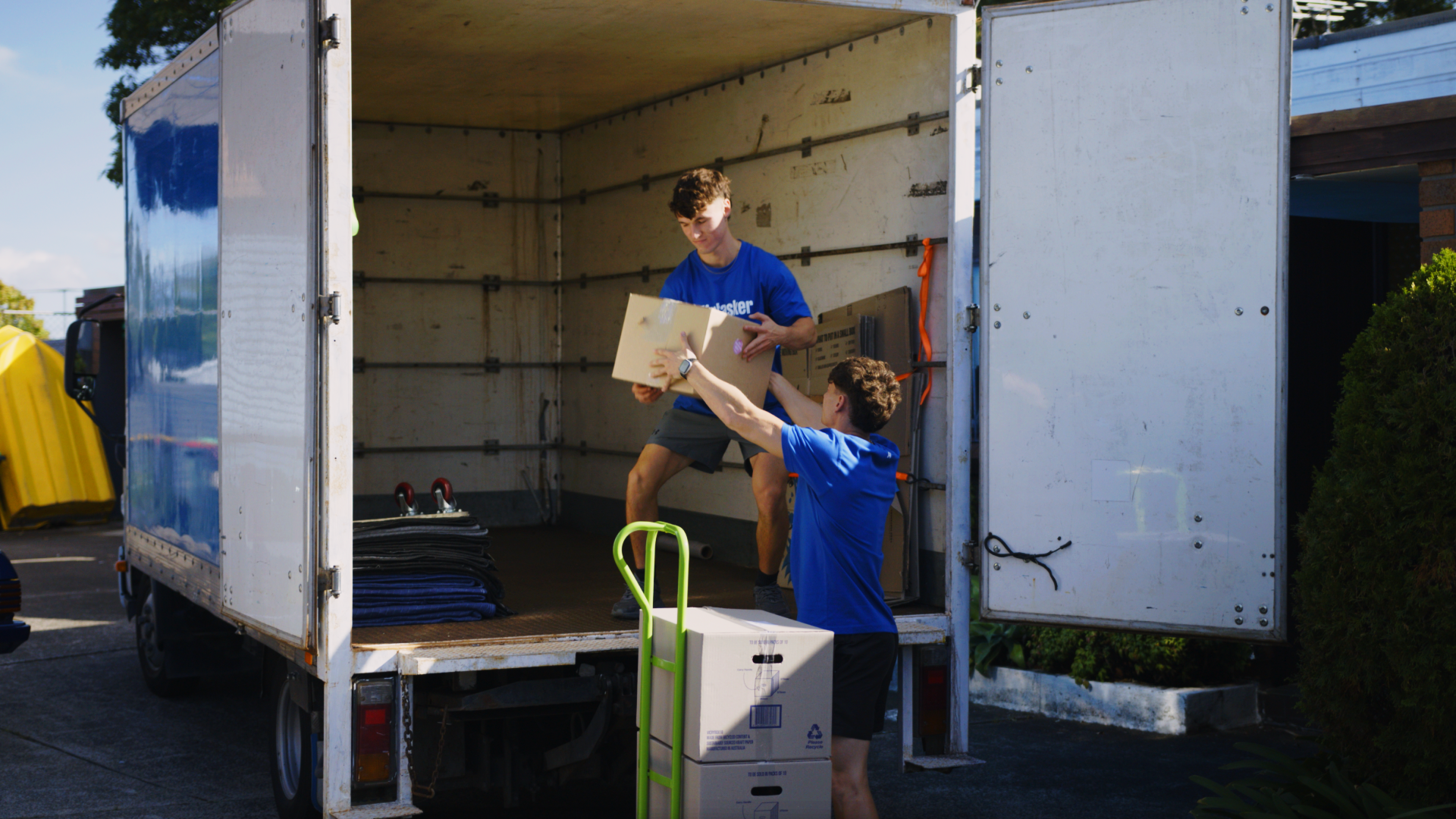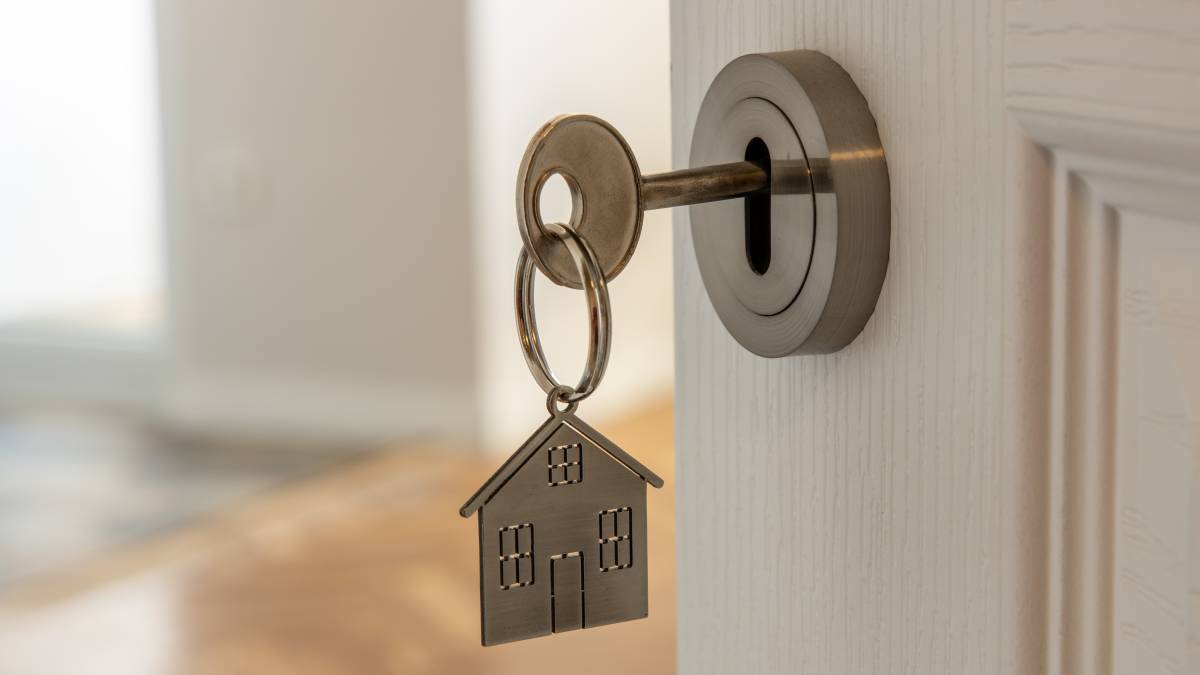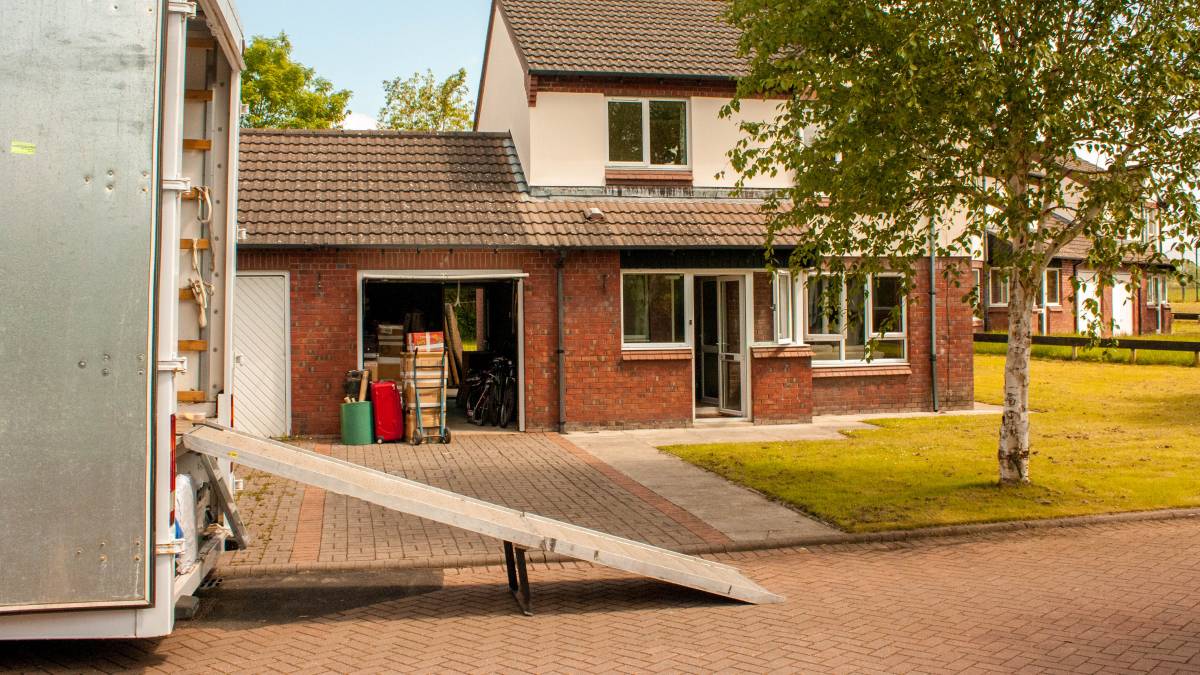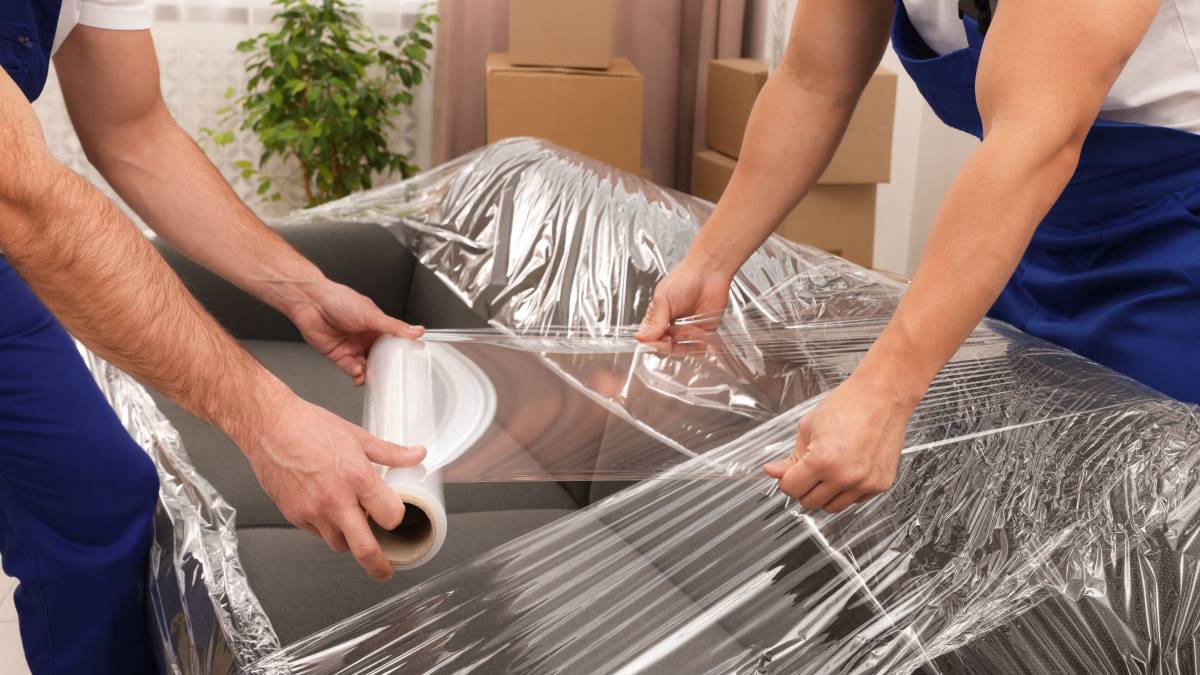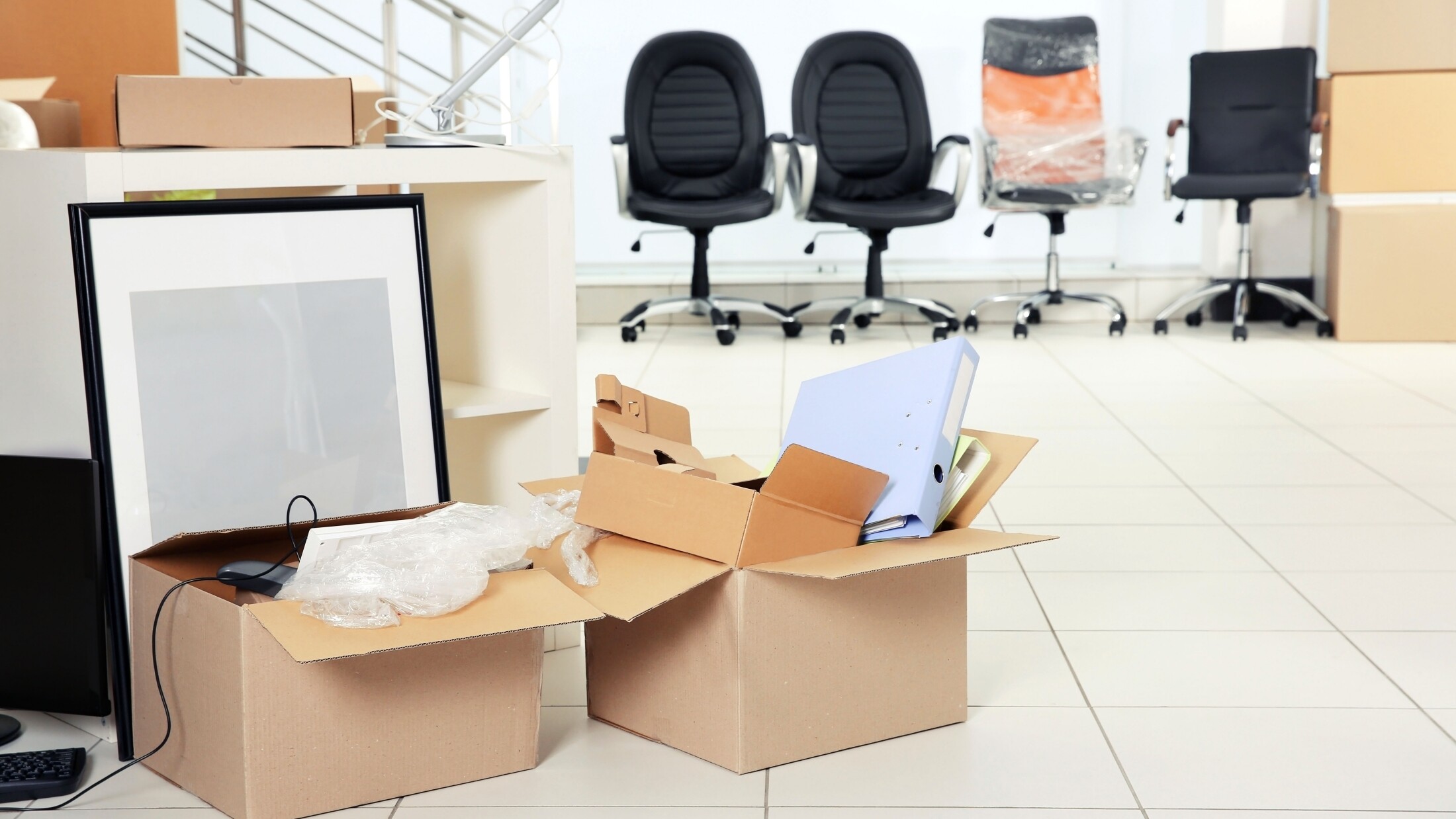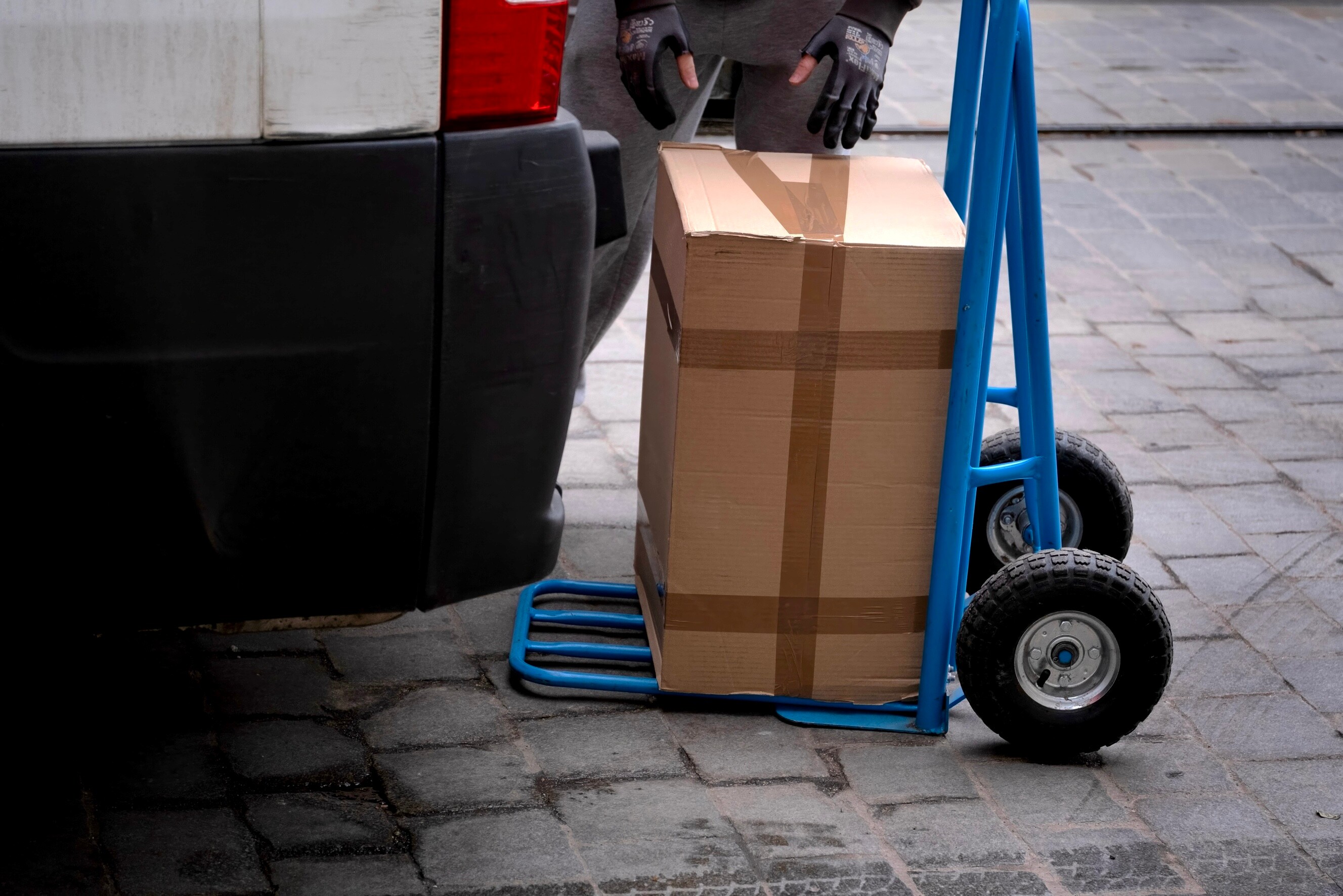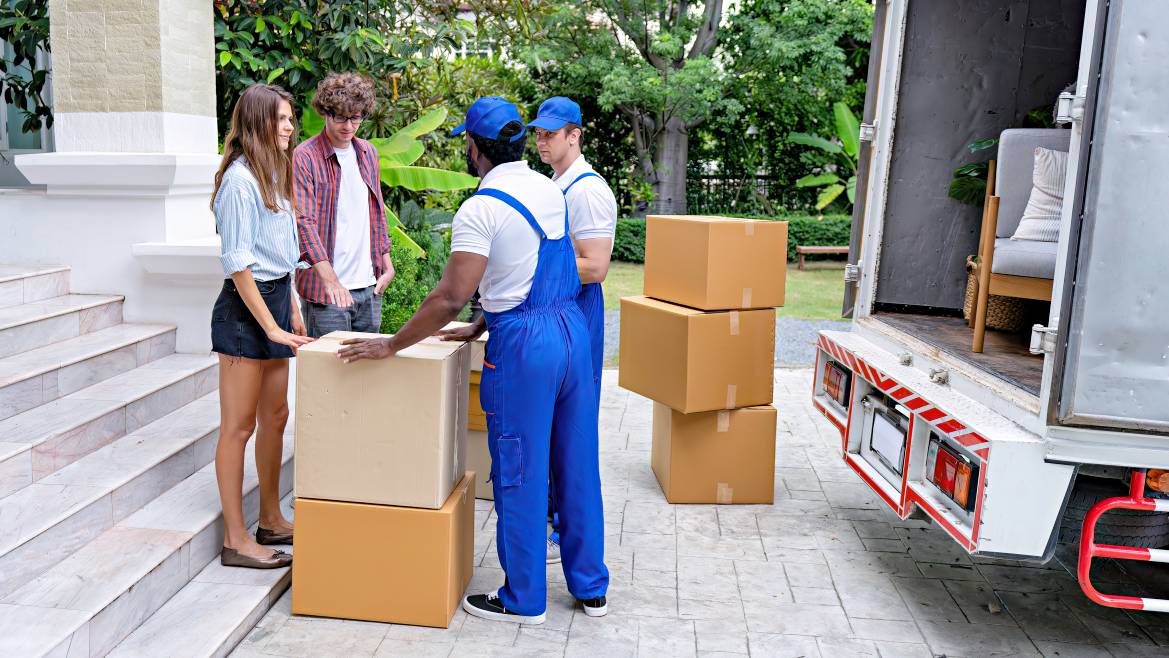
How much does it cost to hire movers in the US?
Post to find a price. It's free and only takes a minute.
Price per hour
$54 - $160
low
$54
median
$107
high
$160
Last Updated on

Written by Cielo B.
Staff Writer
Read more about our contributor
Key Facts
Moving services in the US typically cost $54 to $160 per hour for a standard package (two movers and a truck), with rates varying by city, distance, and home access.
Weekend and summer moves may cost 10–35% more, so book during off-peak times like weekdays or mid-month dates to access lower rates.
Decluttering and self-packing before your move can significantly reduce labor time, packing material needs, and overall moving costs.
Are you planning to start over and move to another place? You’ll need to understand the moving costs involved, as prices fluctuate depending on demand. This helps you set your budget, avoid surprises, and make informed decisions.
In this guide, we’ll break down the movers’ cost in the US, plus tips to help you save money. Whether you’re hiring professional movers for the first time or comparing quotes, you’ll plan your move with confidence.
What are the average costs of movers in the US?
In the US, the average cost of moving services ranges from $54 to $160 per hour, which is the standard rate for two men and a truck. However, prices can still change, depending on various factors such as the size of your property, the volume of items, the distance of the move, and whether additional services are required.
Here is a breakdown of the average cost of movers per hour in some cities in the US:
| City |
Average Cost of Movers (per hour) |
|---|---|
New York City (NY) |
$100 — $160 |
Los Angeles (CA) |
$77 — $123 |
Chicago (IL) |
$70 — $112 |
Houston (TX) |
$54 — $86 |
Phoenix (AZ) |
$63 — $101 |
Philadelphia (PA) |
$73 — $117 |
Atlanta (GA) |
$69 — $110 |
Denver (CO) |
$69 — $110 |
Boston (MA) |
$83 — $133 |
Seattle (WA) |
$87 — $139 |
Orlando (FL) |
$61 — $98 |
Salt Lake City (UT) |
$57 — $91 |
What factors affect the costs of movers?
 Airtasker mover handling relocation tasks inside a residential space
Airtasker mover handling relocation tasks inside a residential space
Budgeting is one of the most stressful parts of moving out. Prices can fluctuate, so it helps to understand the factors that affect mover prices. Read on to plan your big move with confidence.
Distance of the move
The longer the distance, the higher the cost. Movers spend more hours on the road, so labor charges are increasing. You’ll also have to factor in extra fuel costs, especially when moving interstate.
Local moves
Local moves or moving out within the same city only are the most affordable, with the cost for movers locally typically ranging from $45 to $145 an hour. The rates may vary by city and truck size, but small and medium-sized moving trucks of around 12—25 ft. are most often used. As for the extra fuel charges, they’re usually included in the hourly pricing.
Note that prices can increase depending on your home’s accessibility. For instance, movers may charge extra for the extra time and labor if you live in an apartment with stairs or no lifts. The same goes for those living in townhouses or row homes with limited parking and access.
Regional moves
Regional moves require movers to travel and move things from one city to another or to nearby states. Since this requires more driving time, you’ll likely be billed a flat rate or an hourly rate plus mileage. For reference, regional moves can cost around $1,000 to $4,000.
Unlike local moves, regional moves require larger box trucks of around 20–26 ft. Fuel costs are higher, too, with moving companies often billing customers an hourly mileage fuel surcharge of $0.50 to $1.00 per mile. Depending on route difficulty, some companies charge $3 to $5 per gallon.
Moreover, moving from rural areas to the metro and back could pose logistical challenges due to gravel roads and long driveways. Movers may need a longer time to load and unload, increasing labor costs.
Cross-country and interstate moves
For cross-country and interstate moves, distance is the most significant cost driver. However, other factors, such as the volume of items, toll fees, accommodation, and meal allowances for drivers and movers, can further increase the cost of cross-country movers, with prices ranging from $2,600 to $8,100. Not to mention, large 26-ft trucks and tractor-trailers are required for long-distance moving services, and they cost more to rent.
Long-distance moves also involve multiple refuels, which could cost more than $11,000 for moves of more than 2,000 miles. Note that moving companies set distance bands or mileage brackets that help standardize how much to charge for the travel portion. Distance bands are often priced as:
500 miles: extra $1,500 to $3,500
1,000 miles: up to $6,500
2,000 miles: up to $11,000+
Additionally, moving into a difficult-access home could also increase the cost of hiring long-distance movers for cross-country and interstate moves. For instance, large trucks can have difficulty accessing some inner parts in New York City, so you’ll have to opt for shuttle services, which could add to that total cost.
Here’s a comparison table showcasing the typical moving costs in the US for different move types:
| Move Type |
Distance Range |
Truck Size |
Fuel Costs |
Estimated Cost |
Example |
|---|---|---|---|---|---|
Local Move |
0—50 miles |
|
Included in local move hourly pricing |
$400–$2,800+ |
Moving a 1-bedroom apartment across Brooklyn, NY |
Regional Move |
50—250 miles |
20–26 ft. box trucks |
Mileage-based fuel surcharge |
$1,000—$4,000 |
Relocating a 3-bedroom house from Austin to Houston, TX |
Interstate Move |
250—3,000+ miles |
26-ft. Trucks or tractor-trailers |
Based on distance bands |
$2,600 - $8,100 |
Moving a family home from Chicago, IL, to Atlanta, GA |
Number of movers needed
Although most moving companies offer two men and a truck as the standard package, you may want to request additional manpower for a faster and more efficient move. This could be helpful when moving large, fragile items, like a piano or pool table.
Now, how much would an additional mover cost? Around $70 to $90 per mover, per hour, but, as mentioned, rates can vary widely depending on the location.
Type and volume of items
The cost to hire movers also depends on the weight of your items. Of course, the heavier the items, the higher the hourly cost for movers because more people and larger trucks are needed. So, if your family needs to move multiple appliances, expect the prices to increase. The same goes for moving mattresses, which are bulky and require heavy lifting.
Remember that moving pets and plants can also increase the cost. These fall under moving specialized items, and the fees may vary by type and size of the animal or plant.
Access and logistics
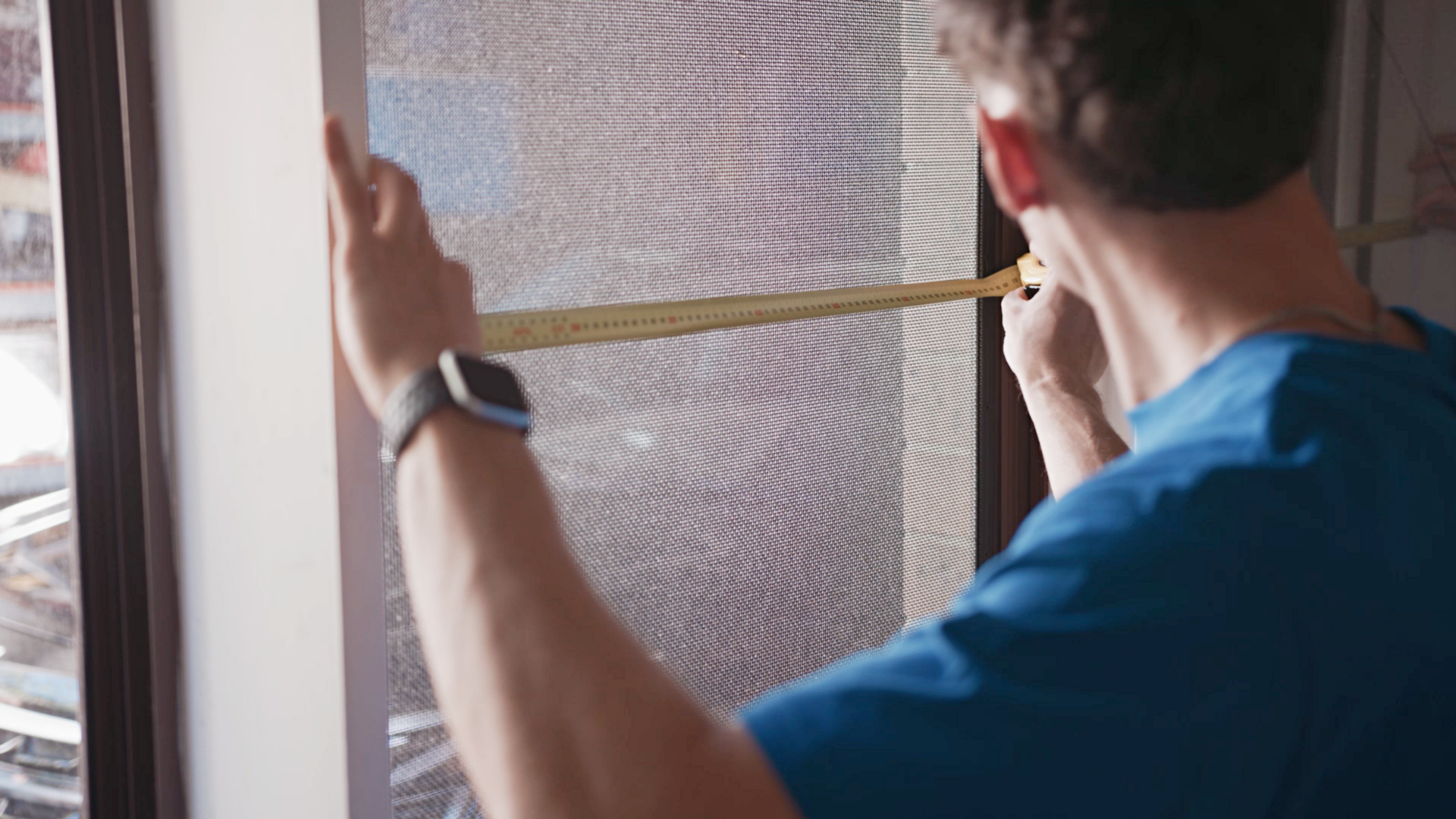 Mover in Airtasker uniform taking measurements during a job
Mover in Airtasker uniform taking measurements during a job
As mentioned earlier, homes with limited access can drive up moving service prices. Moving items is difficult if your property has no elevator, and it may require more labor and specialized equipment.
Meanwhile, if you move to a house with limited parking, expect higher moving costs because trucks can’t park nearby. The drop-off location will be far, so you’ll be charged a “long carry’ fee,” as they’ll need to walk farther to load and unload the items. The same applies if your property is on a long, narrow street.
Timing of the move
Moving on a weekend is the most expensive because most wish to avoid missing work or school. Increased rates also apply during the peak moving season in summer, from May to October, with moving costs spiking by 10-35%. Many people schedule their move during the summer before a new school year starts, leading to higher demand and prices.
The beginning and end of the month are also considered peak season, as most tenants’ leases end during this period. To reduce costs, you might need to plan and book a moving schedule in the middle of the month.
Insurance and liability
Hiring professional movers gives us peace of mind, not just because of their expertise but also because the extra equipment they provide ensures our belongings are safe while in transit.
However, unexpected mishaps can still happen during the move. No matter how careful professional movers are, expect some minor damage to some fragile items. Purchasing insurance is recommended when hiring movers, as it provides protection for damaged or lost items.
Moving company’s insurance
Although most moving companies include some level of insurance or protection in their services, it’s essential to understand the limitations and consider other options. The standard protection typically only covers your items while they are inside the moving vehicle and often provides only minimal compensation based on weight.
However, this coverage usually does not extend to damage during loading or unloading, while items are in storage, in hallways or elevators, or in self-packed boxes.
In addition, movers usually carry General Liability Insurance, which protects them in case they accidentally damage your property (like floors or walls) or if someone is injured during the move. However, this does not cover your belongings if damaged, lost, or stolen, so additional insurance is ideal for peace of mind.
Here are other options you can choose for your move:
Basic (released value protection)
Basic insurance is the most affordable but has limited coverage. Even though the mover is liable for an item that is lost or damaged during transit, the compensation is based on the item’s weight and not its actual value. You’ll still have to cover the remaining cost if the replacement value is higher than your payout, which is the amount that the insurer or mover agrees to pay you if an item is lost.
Full value protection
Full Value Protection (FVP) is the most comprehensive valuation coverage offered by moving companies in the US. It’s based on the declared replacement value of your shipment and covers repair, replacement with a similar item, or cash reimbursement for lost or damaged goods.
While this coverage typically applies throughout the moving process (transit, loading, unloading), it may not extend to temporary storage or to events like natural disasters unless specifically included.
No insurance deductible (excess) is standard, but movers may impose minimum claim values or item limits for high-value goods.
Third-party insurance
Third-party insurance is an insurance claim you’ll purchase separately through an insurance company or broker, not the moving company. This is a good option if you need extra protection for fragile or high-value items because it offers flexible coverage. You can choose whether to avail of an insurance claim that covers transit, loading or unloading, temporary storage, or even international shipping.
Check out this table to compare each insurance claim and determine which one’s the best for you:
| Insurance Type |
Coverage |
Mover’s Liability |
Customer’s Liability |
Notes |
|---|---|---|---|---|
Basic Coverage (Included) |
Minimal coverage based on weight |
5–10% |
90–95% |
Included by default for all move types |
Full Value Protection |
Covers full repair, replacement, or cash reimbursement based on declared value |
90–100% |
0–10% |
Most comprehensive mover-provided coverage; may not include natural disasters or storage |
Third-Party Insurance |
Covers additional risks: storage, transit, natural disasters, theft, etc. |
100% |
0% |
Purchased separately; highly recommended for fragile, high-value, or intl. moves |
No Insurance |
No financial protection for loss or damage |
0% |
100% |
Customer assumes full responsibility |
Additional services
Moving involves more than transporting goods from one place to another. You’ll also have to consider packing and unpacking costs, as well as those of furniture moving. Some moving companies offer these services as add-ons at an extra cost, so remember to ask about them when gathering quotes from various service providers.
Storage could also be a problem during the move, especially if unexpected delays happen. Whether it’s short- or long-term storage, factor this into your move budget.
What are some ways to save on movers?
Moving can cost a fortune, but you can save money with these tips and tricks:
Declutter before the move
Settling into another home or office is the best time to declutter. Get rid of all the things that are no longer needed and hire moving services to reduce the number of items to move and transport.
Since the volume and weight of items affect the total cost of hiring movers, fewer belongings result in a lower quote. Plus, it means less packaging, helping you lower costs easily.
Major decluttering also helps you identify what shouldn’t be included in the move. Aside from dangerous goods, movers often don’t allow moving certain items, such as cleaning supplies, perishables, and other high-value items. You may need to arrange different transportation for these goods.
Pack smartly
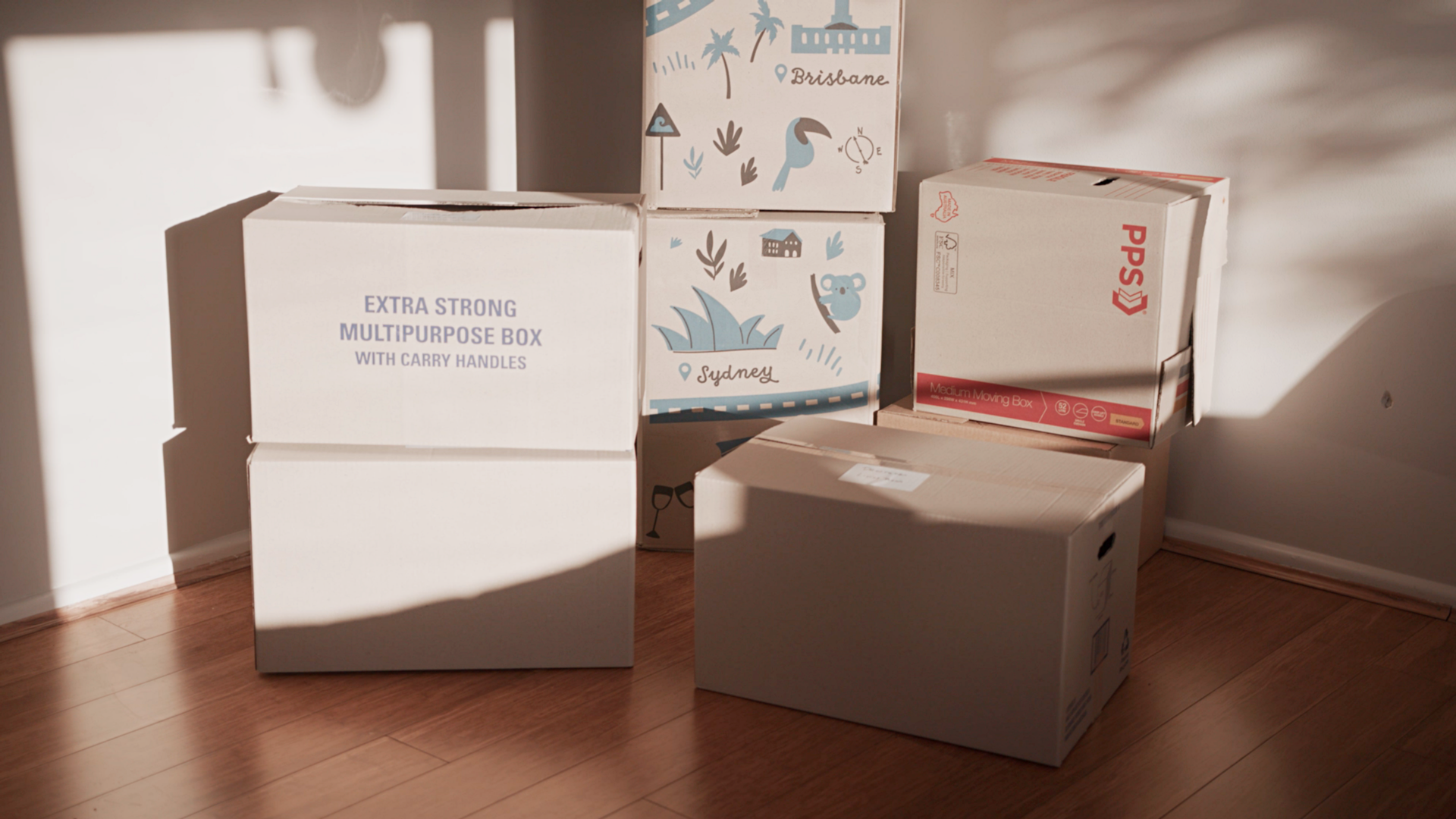 Group of labeled moving boxes stacked in a sunlit corner of a room
Group of labeled moving boxes stacked in a sunlit corner of a room
Although movers can do the packing, it is an additional service that can further increase costs, so consider doing it yourself. To save money on packing supplies, you could use towels or blankets instead of purely styrofoam and bubble wrap to pack fragile items.
Additionally, pack strategically by nesting items inside one another. Consider utilising the space within furniture drawers to fit more into fewer boxes. This reduces the items movers must manage.
Here’s a tip: Let the kids help move and pack. The tedious work can be made more fun with the little ones helping move things around (and it’s a chance for bonding time!).
Aim for off-peak seasons
Plan and book during off-peak seasons to reduce costs. Although booking during summer and holidays is convenient, moving costs are much higher during these times.
Aim for weekdays and mid-month dates, as they’re the cheapest times with moving companies offering competitive prices to attract more customers to book. Booking around October to May is also good because moving costs are more affordable during the off-season.
What should you look for in a mover?
Finding the right mover takes time and effort. In addition to checking their background and experience and reading previous customer reviews, here are some of the most important things to look for:
Compliance
In the US, professional moving companies can become ProMover certified through the American Trucking Associations (ATA). This certification ensures that the mover is licensed, insured, background-checked, and adheres to strict ethical standards. You can verify a company’s certification at ATA’s consumer website, Moving.org.
Additionally, all interstate movers must be registered with the Federal Motor Carrier Safety Administration (FMCSA). You can check their license, insurance, and complaint history at the FMCSA website.
Fair and detailed quotes
Whether it’s a local or long-distance move, request a detailed and accurate full-service moving cost estimate. Also ask whether the quote is the final price and what happens if the moving company underestimates the volume of items, as you could be charged additional fees.
Specialized equipment and expertise
As a customer, you want your belongings handled with extra care and effort, so find an expert who can provide you with the right equipment and tools, such as dollies, furniture pads, or moving blankets. It would be great if they could also help you with the disassembly and reassembly since this is another time-consuming part of the move.
Seamless communication
Relocation can take days, even for local moves. This is why it’s essential to look for movers with dedicated online platforms that let you easily track progress. Their platform should at least have shipment tracking, customisable moving timelines, and interactive checklists to make things more streamlined and organized. Plus, having access to these tools gives you peace of mind during a move.
Make relocation easier with Airtasker
Moving doesn’t have to be a monumental task. The stress of packing, coordinating, and executing a move can be overwhelming, often turning what should be an exciting new chapter into a logistical nightmare.
At Airtasker, connecting with reliable and verified movers is easy. Simply post a moving task, receive offers from qualified pros, and choose a Tasker who best fits your needs and budget.
Find the help you need to settle in your new home with Airtasker.
Learn more about our contributors

Written by Cielo B.
Staff Writer
Cielo is an experienced content writer who has explored various industries throughout her career. Her expertise, founded on a degree in journalism, includes writing about automotive and home maintenance. Cielo also covers topics like dressmaking, tailoring, and photography since she is a passionate cosplayer who enjoys dressing up as her beloved anime characters.
FAQs on mover costs
Yes, any delays or extra waiting time can incur additional costs because most movers charge based on the time taken for the move. So, if there are access issues, unexpected disruptions, and long traffic, expect an increase in the total estimated movers’ cost.
Yes, multi-stop moves are costlier because they typically take more time, increasing labour costs. Plus, they may need extra logistics work.
Toll fees aren’t always included, as most moving companies usually charge them as extra fees for navigating toll roads. You may want to clarify this with your chosen provider to avoid unexpected costs.
Most US taxpayers cannot deduct moving expenses due to the Tax Cuts and Jobs Act (TCJA). However, there’s a key exception for active-duty military members. If they relocate because of a military order, they can still deduct qualified moving costs, such as expenses for packing, transportation (excluding meals), storage, insurance, and housing.
Find movers, fast
Post a task
Related price guides

How much do packers cost?
Read more
Related articles

A guide to becoming a mover
Read more

How much do movers make?
Read more

Tips for moving house with kids
Read more
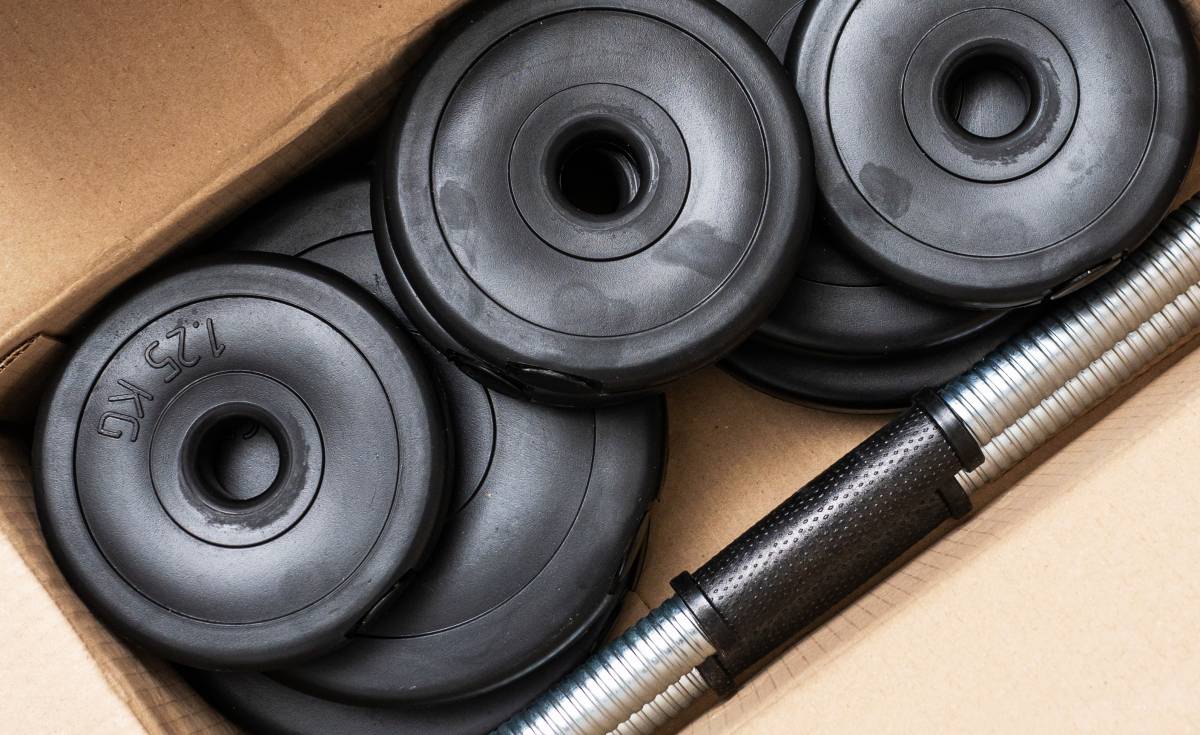
How to move gym equipment safely
Read more

How to pack kitchen items
Read more

How to pack books for moving
Read more

How to pack artwork for moving
Read more
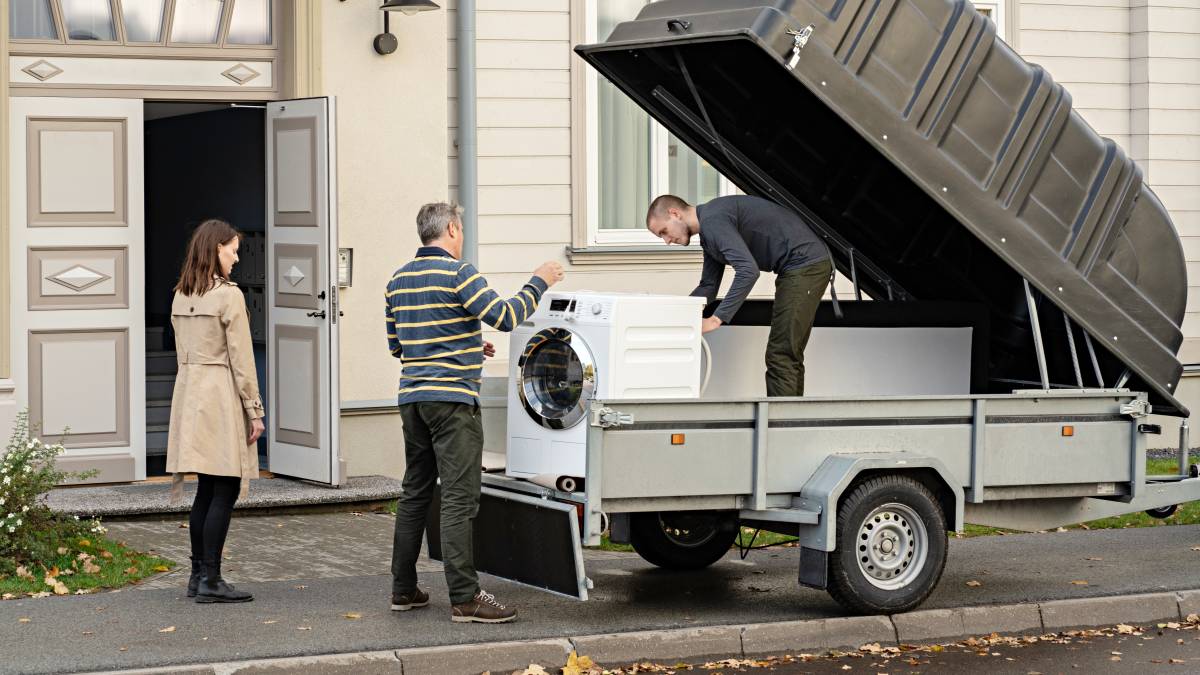
How to move a washing machine
Read more
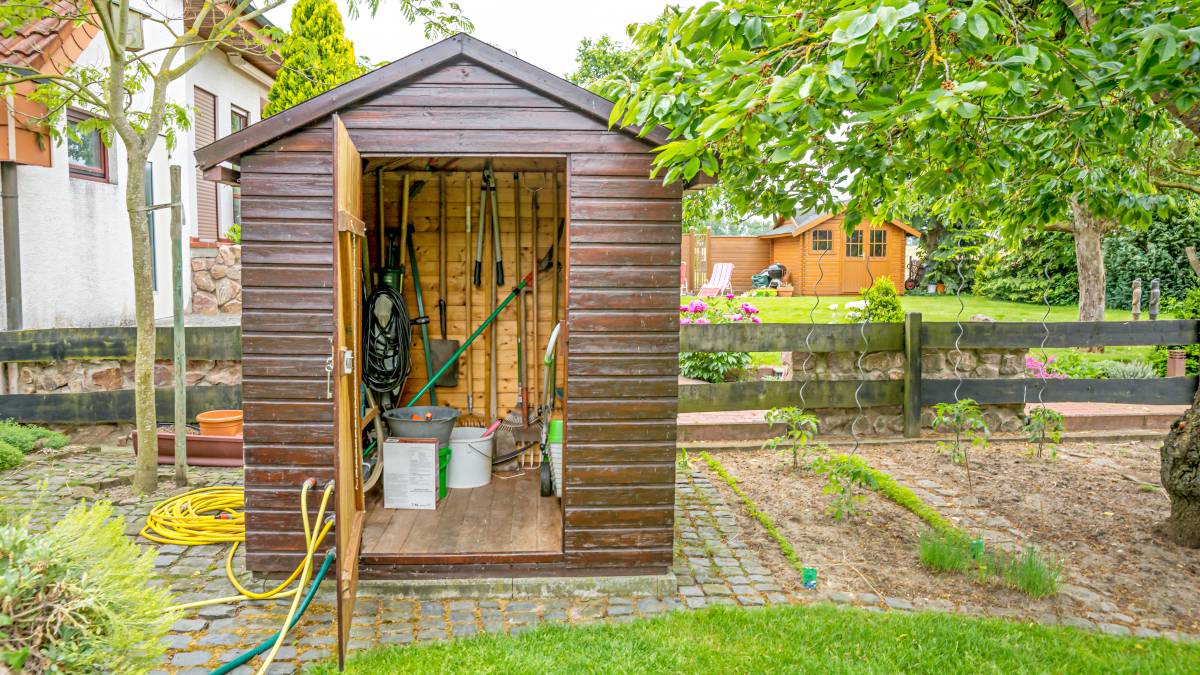
How to move a shed
Read more
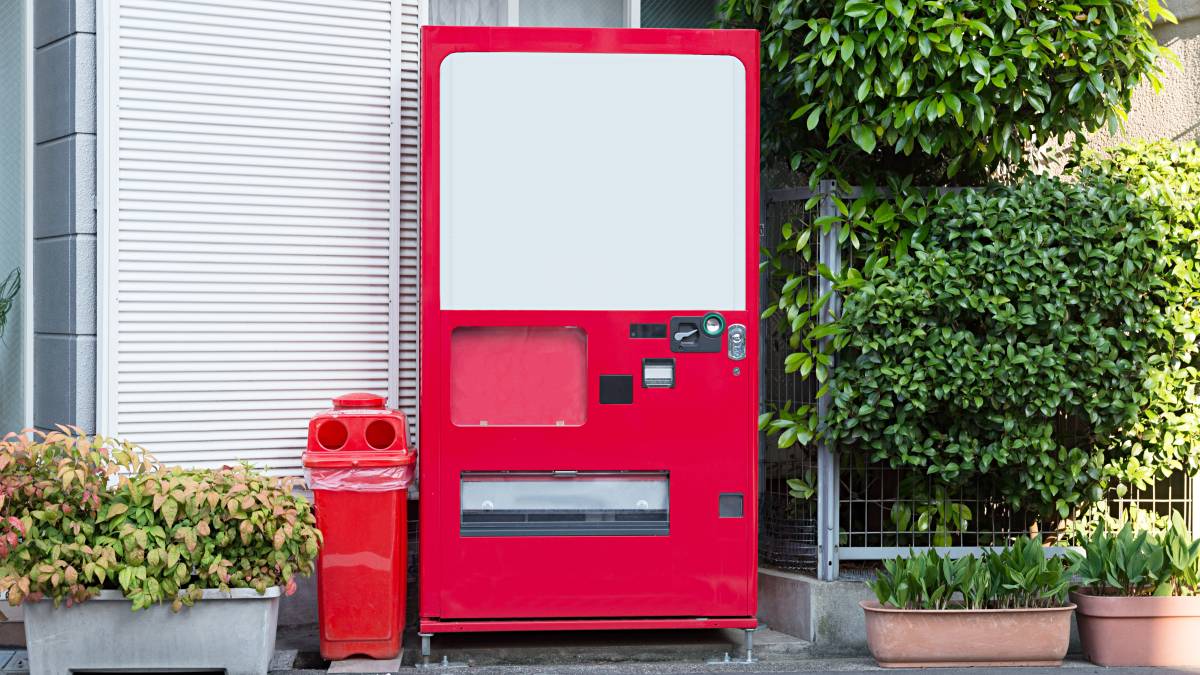
How to move a vending machine
Read more

How to move a pool table
Read more

How to pack bedding for moving
Read more
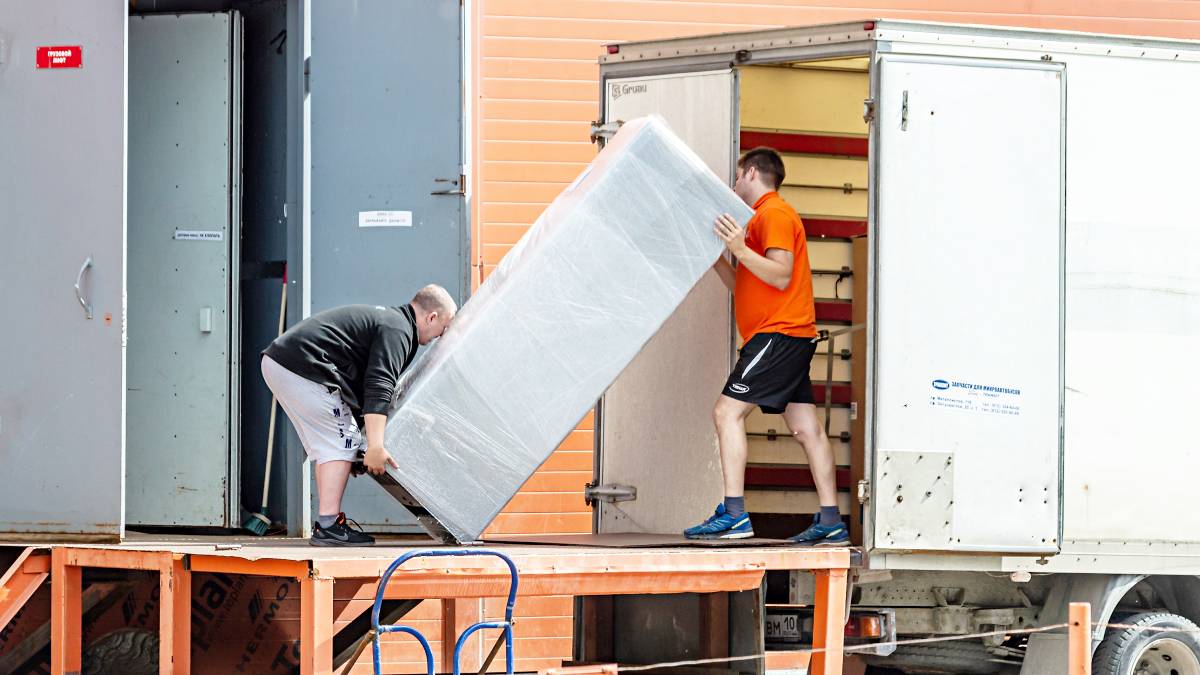
How to move a refrigerator
Read more

How to move a pinball machine
Read more

Where to get moving boxes for free
Read more

How to wrap furniture for moving
Read more

What movers won’t move
Read more

The ultimate packing and moving list
Read more

Moving interstate checklist
Read more

Moving out of state checklist
Read more


